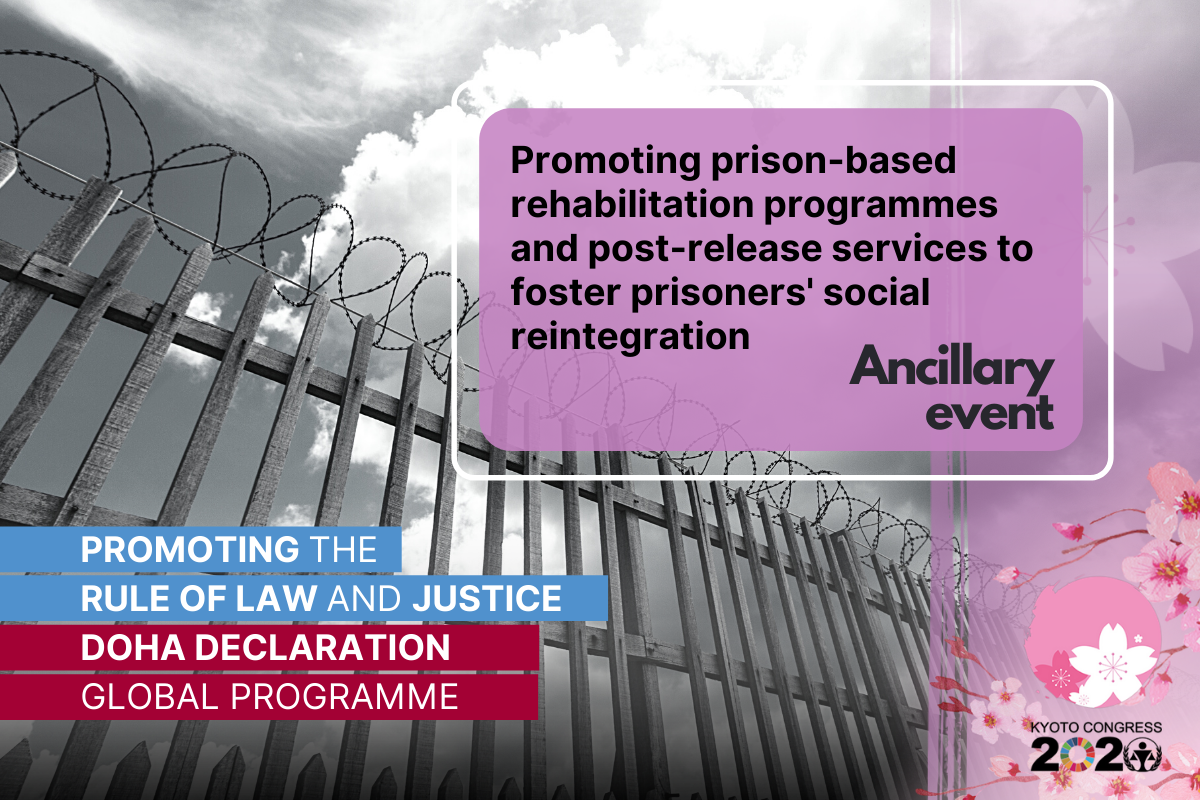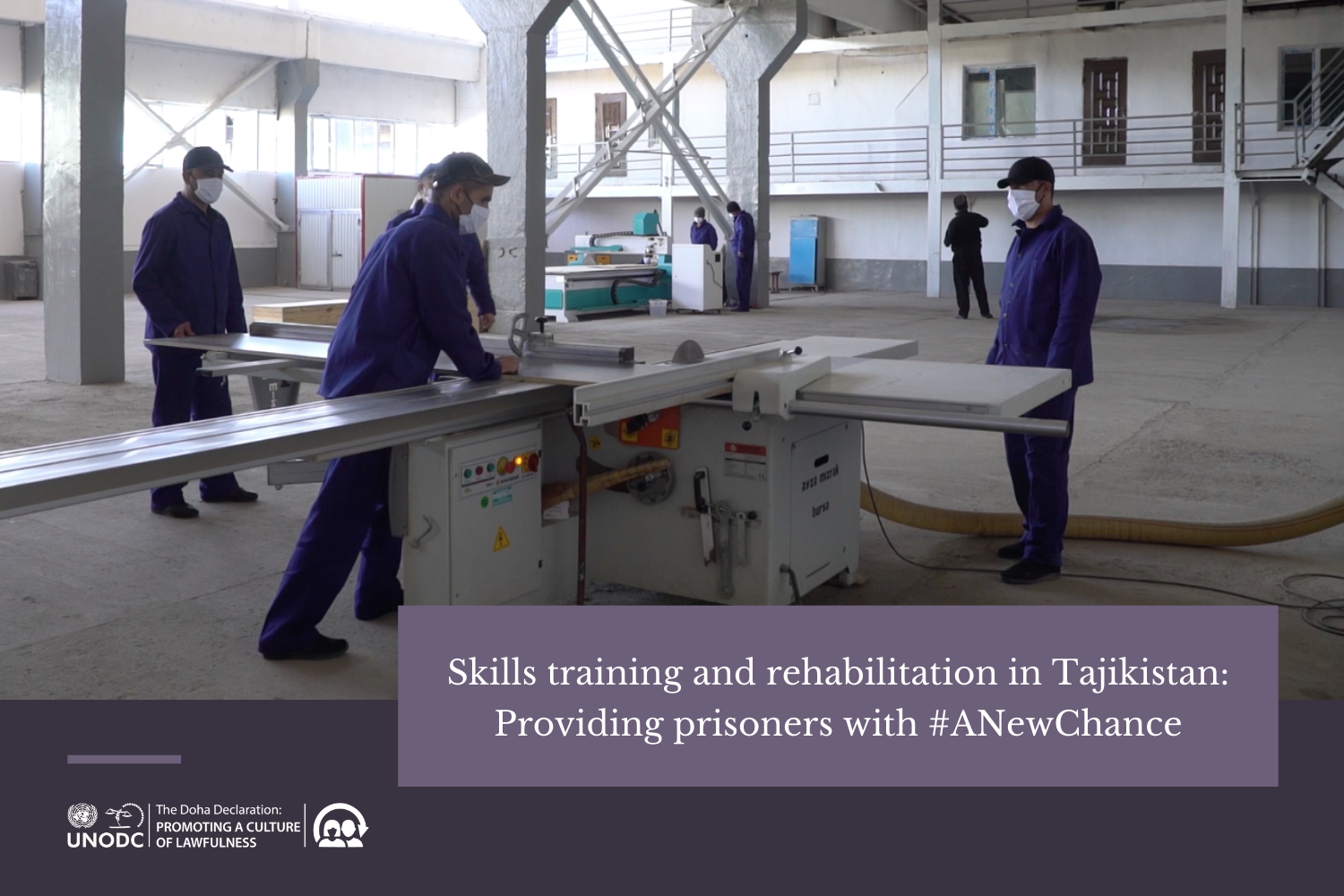Helping Bolivian women build their economic freedom
9 October 2018 - UNODC's work on the improvement of prison conditions is well-known, and its support is increasingly requested by Member States reconsidering the status of their penitential system. Fighting drugs and crime takes place at many levels, and switching from a punitive to a more rehabilitative approach has become a growing trend among prison administrations.
As the guardian of the Nelson Mandela Rules, UNODC puts great focus on the conditions of prisoners, and on contributing solutions to facilitate their smooth reinsertion into society. This important vocation is also one of the four components of the Global Programme for the Implementation of the Doha Declaration, and one where UNODC, in partnership with Member States, is always trying to cover new ground, with the generous support of the State of Qatar.
One example is a prisoner rehabilitation project launched recently in Bolivia, a country where women count for about eight per cent of the prisoner population, and where two thirds are incarcerated for non-violent crimes, usually related to the micro-trafficking of drugs. With most coming from a low socio-economic and educational background, and with the additional burden of being the main or even sole earner in the family, these detained women could easily fall back into crime if they are unable to guarantee a steady and sufficient livelihood.
|
Helping them prepare for life after their release is key to avoiding recidivism, and the UNODC Global Programme is promoting the reinsertion of released women into society by helping them rebuild their future. Specifically, UNODC is encouraging women to learn trades which will increase their self-sufficiency and take them away from traditionally female-dominated, low paying sectors such as sewing, domestic services or the food sector.
This innovative approach is currently being rolled out in Bolivia with an initial group of 50 female detainees, who will be taught and trained to work in the construction industry, which offers a vast range of specialties (including builders, metal workers, plumbers, pipefitters, electricians, and carpenters). Additionally, 10 women will become replicators, themselves training other women in subsequent projects and thus creating a multiplier effect.
Bolivia's construction sector is growing, with a high demand for qualified female workers, and the average salary of construction workers is 25 per cent superior to the national minimum salary. For women, the opportunity to enter this sector following a formal training is a formidable method of empowerment, and a road to financial security and a normal life. In addition, after their release from prison, these women will be supported in joining the National Association of Women Constructors in Bolivia ( ASOMUC in Spanish), which helps its members promote their services, find work opportunities, and eventually develop their own business.
"Through this project, UNODC is not only giving female offenders an opportunity to successfully reintegrate into society upon release, but we also offer them alternatives to typical gender stereotyped rehabilitation programmes usually available to women," said Muriel Jourdan-Ethvignot, Crime Prevention Officer at UNODC.
With its domino effect, such a project is designed to bring a sequence of benefits. Mario Gonzales, director of the NGO in charge of training female prisoners, looks at the big picture. "Training women prisoners is part of an integral process; not only are they receiving technical training, but they are also going to be empowered in exercising their rights, and upon release they can do better work and have a higher income, which will give them a higher quality of life."


